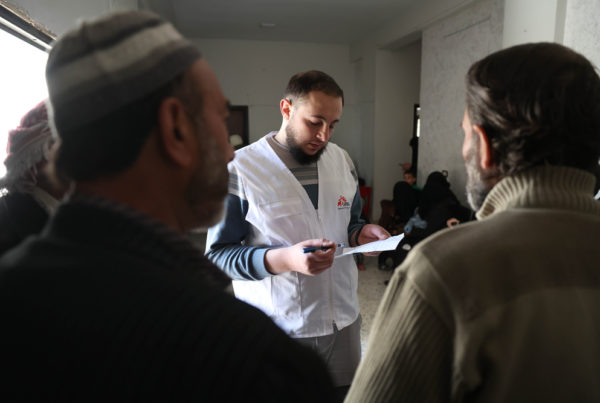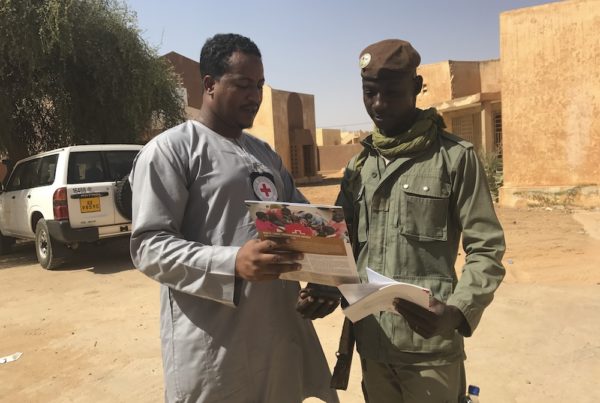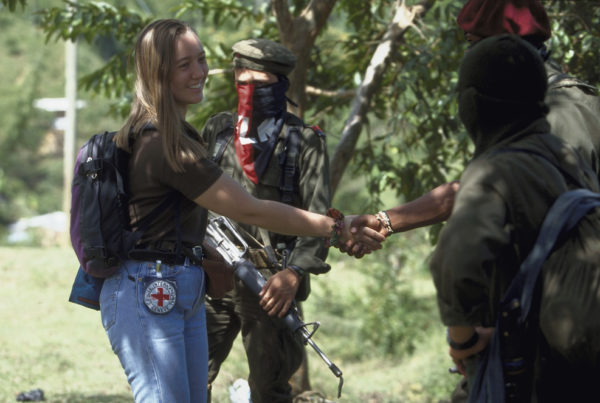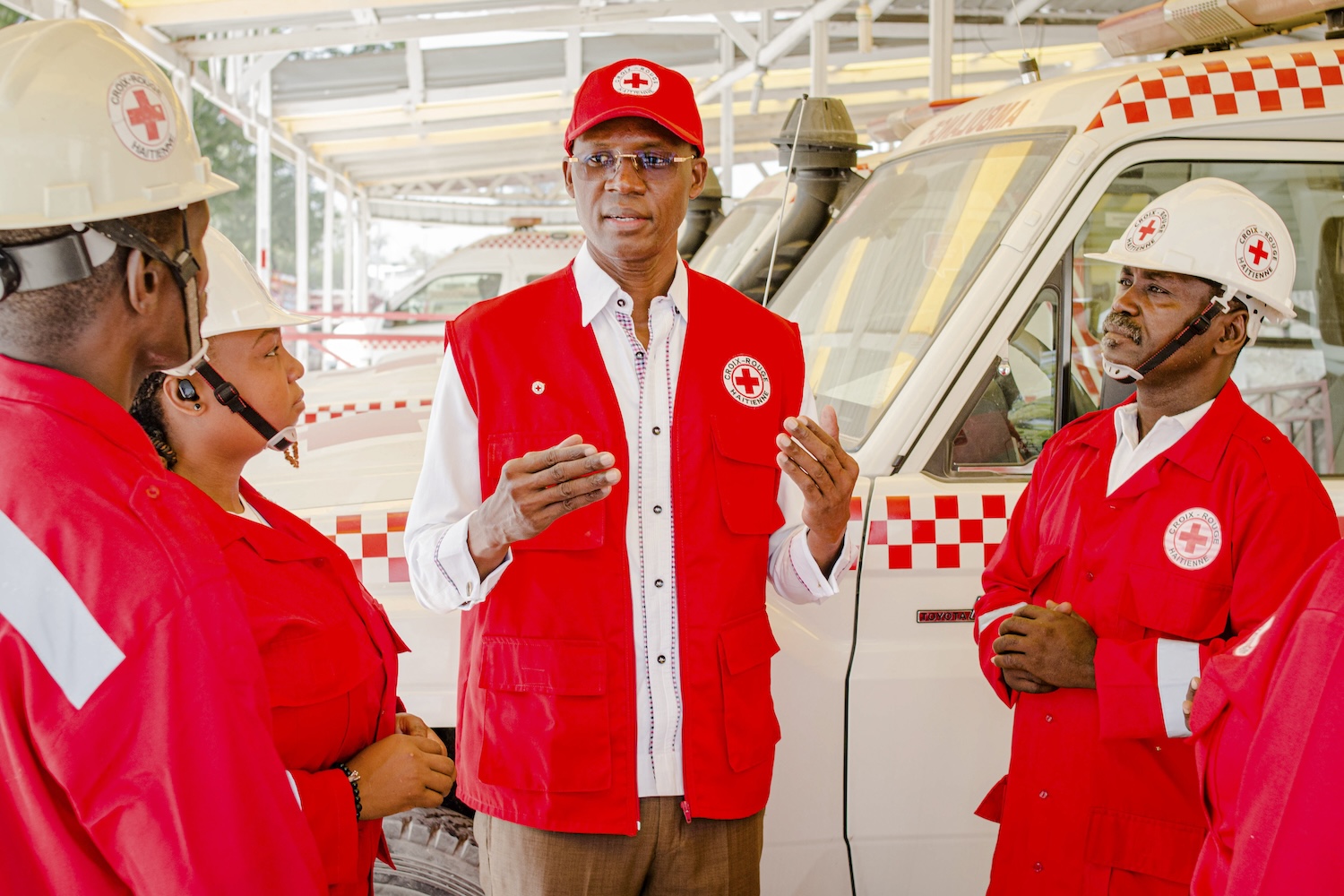
Have you ever felt like your counterpart keeps side-tracking the conversation? Or that you are stuck in a fruitless discussion?
According to the CCHN Field Manual, humanitarian negotiations can move between three levels: the political, the professional and the technical.
Knowing how to identify what type of negotiation you are having will help you gain control over it and draw the conversation to where you feel more comfortable.
Let’s dig in.
What types of humanitarian negotiations are there?
Humanitarian negotiations can be sorted into three different types:
- Political negotiations deal with questions around identity and values. This can include your organisation’s mission and principles, your counterpart’s sovereignty, religious norms, and social constraints.
- Professional negotiations focus on standard operating procedures such as medical or engineering protocols, or quality standards such as efficiency, accountability, and transparency.
- Technical negotiations address the logistical agreements of a humanitarian intervention like the ‘what’, ‘when’ and ‘with whom’ you will operate.
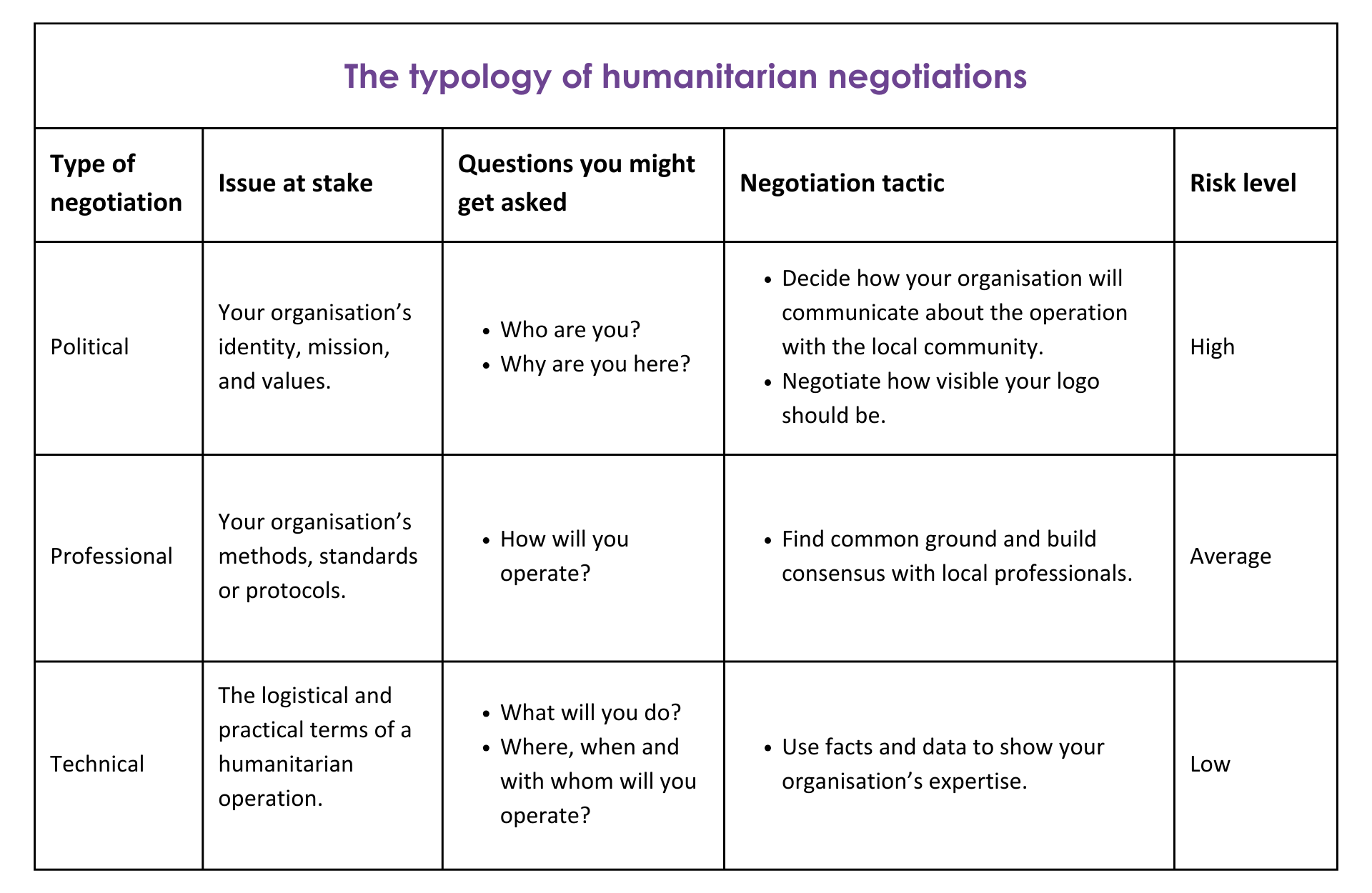
Each type of negotiation entails a different kind of compromise and level of risk. Overall, the objective is to establish common ground with your counterpart, no matter the negotiation type.
Remember, a negotiation process can start at any level, remain there all along or move from level to level.
Let’s look at each in more detail.
1. Political negotiations
A political negotiation is generally about the nature, identity, origins, and mission of your organisation.
The key questions counterparts can ask are:
- Who are you?
- Why are you here?
Since you can’t change much about the identity, values, or norms of your organisation, you have limited flexibility for compromises on these matters.
However, you can find some leverage by deciding how your organisation will position itself, communicate publicly about its activities or even minimise the operations’ visibility – for instance, by not using your organisation’s logo.
☝️ When we say ‘political’, we don’t necessarily mean ‘high level’, and neither do we refer to counterparts involved in government politics. Political negotiations may take place at the national or local level, or even at a checkpoint—in fact, everywhere a counterpart may ask: “Who are you? Why are you here?”
Risks
These negotiations are a source of considerable risks.
The more political the negotiation, the more risks there are to your organisation’s reputation, perception, security, or instrumentalisation.
For instance, “cutting deals” on your organisation’s identity, norms, or values may have severe consequences for its integrity and reputation.
Ignoring human rights or international humanitarian law violations, for instance, by disregarding issues such as trafficking or underage marriage in the community, are not acceptable compromises when negotiating a political issue.
Tactics
The main tactic you can use when carrying out a political negotiation is to find the right compromise around the visibility and positioning of your organisation’s profile and the impact created by its identity and values within the community.
For example, if your organisation is falsely perceived as promoting the interests of foreign actors, you could collaborate with a local NGO, be accompanied by a local representative, or hire local staff.
Preparing a narrative explaining relevant aspects of your mandate and mission in an accessible and easy-to-understand way will help your counterparts have a better understanding of your organisation.
2. Professional negotiations
Professional negotiations focus on the methods and standards of your organisation’s operation.
The key question at the start of a professional negotiation usually is:
- How do you intend to operate?
Just like its mission and principles, your organisation’s operational standards can be easily misunderstood, especially if these methods are not in line with local practices.
For instance, your counterpart might distrust your vaccination protocols, assessment and monitoring methods, or accounting and financial standards.
Compared to political negotiations, professional negotiations aren’t about finding the right compromise, but building a new consensus around your organisation’s professional ‘modus operandi’ or finding ways to accommodate both local and institutional norms.
Risks
Negotiating professional operating procedures poses a substantial risk for your organisation since it can put its professional reputation and due diligence into question.
Operating in a different country, and particularly in a conflict environment, means that local professional standards will likely diverge from your organisation’s protocols.
When carrying out a professional negotiation, you should read up on local policies, as well as your organisation’s, to address differences effectively.
Whenever possible, these types of negotiations should be conducted by colleagues who are experts in the domain; for instance, doctors or nurses are better placed to discuss technical medical procedures.
Tactics
The main tactic when conducting a professional negotiation is to engage with local professional associations, like a medical association in the example above, to reflect on how you can adapt or combine the local standards with those of your organisation.
Aim to build consensus with local professionals around the method and protocols you want to apply during the operation.
Remember, carrying out professional negotiations with support from a specialised colleague will help you leverage their authority.
If the professional authority or associations are weak or absent, the negotiation will quickly turn technical (see below).
3. Technical negotiations
Once your organisation’s mission and professional standards have been recognised, technical negotiations are easier to carry out.
However, don’t underestimate this type of negotiation. It’s just as important as the other two types and can carry significant implications in terms of efficiency, security, and integrity of the operations.
Technical negotiations address the logistical and practical aspects of an operation and its implementation in the field.
The key questions your counterpart can ask during a technical negotiation are:
- What are you planning to do?
- What do you need?
- Where, when, or with whom are you planning to operate?
A technical conversation tends to be factual and calls for the right data, evidence, and facts.
The point is to bring in your organisation’s expertise to reach an agreement on how the operation will be carried out.
Risks
Technical negotiations tend to be low risk. They generally don’t put the organisation’s reputation or standards in danger.
Nevertheless, your counterpart may use discussing technicalities to avoid talking about a principled and professional approach to your operation.
Tactics
To gain your organisation’s acceptance, try to display your expertise. Use your knowledge and support your points with data.
Stick to the terms of the operation, such as the time, location, or points of contact, and avoid as much as possible entering or returning to the political and professional aspects of the operation.
Politicising and depoliticising a negotiation
Politicising – moving the dialogue from a technical to a professional or political level – and depoliticising – moving the conversation to the technical level – are standard practices in negotiations.
A counterpart can always politicise the discussion by asking: “By the way, tell me again, why are you here and who are you?”
Equally, you may want to avoid political pitfalls by asking: “Can we focus on how we can work together and provide the necessary assistance to the population in need?”
However, the opposite can also be true. Government representatives may gain by sticking to technical issues, like the allocation of travel permits, to avoid dealing with more principled issues, for example, sustained access to a certain population.
Remember...
A negotiation can be political, professional or technical.
Your counterpart might move between any of these levels to derail the conversation, but now that you know this framework, use it to draw the conversation to the level where you feel more comfortable.
Good luck!

